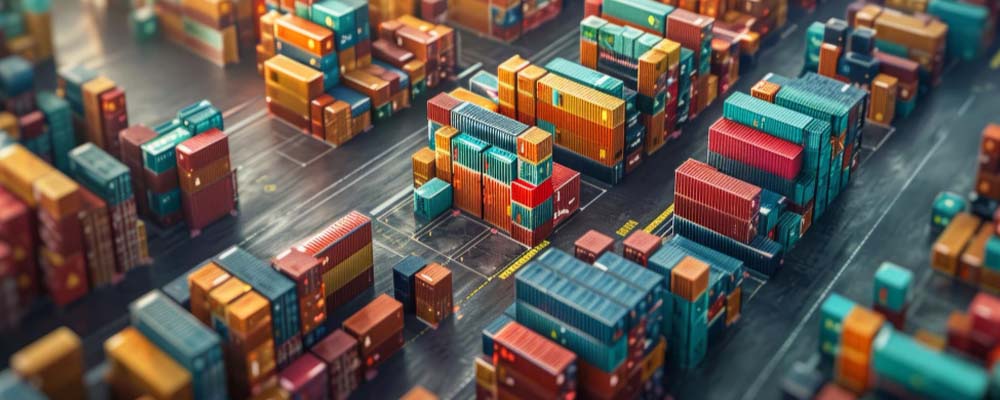
France, the world’s sixth-largest economy, plays a pivotal role in global trade, both as an exporter and importer. Understanding the intricate web of its trade activities offers valuable insights for freight forwarding companies, logistics providers, importers, exporters, customs brokers, manufacturers, and e-commerce businesses. In this comprehensive blog post, we’ll explore France’s main exports and imports, the global demand for its products, and the impact of imports on its economy. We will also examine the critical roles of customs brokers and freight forwarders in facilitating these complex trade activities.
France’s Main Exports
France’s diverse export portfolio is a testament to its robust industrial base. The country is renowned for producing high-quality products, ranging from luxury goods to technological innovations.
Luxury Goods and Fashion
France’s reputation for luxury goods is unmatched. Iconic brands like Chanel, Louis Vuitton, and Hermès lead the global market in fashion, perfumes, and accessories. These products not only sell worldwide but also symbolize French craftsmanship and quality.
Aerospace Products
The aerospace sector is another significant contributor to France’s export economy. Companies like Airbus lead the way in aircraft manufacturing, exporting commercial airplanes, helicopters, and space technology to various parts of the world. This industry benefits from cutting-edge research and development, ensuring France remains at the forefront of aerospace innovation.
Wines and Spirits
France is synonymous with fine wines and spirits. Bordeaux, Champagne, and Burgundy are globally recognized for producing premium wines. Additionally, France extensively exports spirits such as cognac and champagne, significantly contributing to the country’s trade revenues.
The Global Demand for French Products
The global market’s appetite for French products spans various sectors. This demand underscores the country’s reputation for quality, innovation, and luxury.
 Increasing Demand for Sustainable Products
Increasing Demand for Sustainable Products
Sustainability is increasingly crucial in global trade. France’s commitment to eco-friendly practices has boosted the demand for its products. Consumers worldwide are increasingly seeking sustainable options, and French companies are rising to the occasion by offering environmentally friendly goods.
French Technology and Innovation
France’s tech industry continues to make strides on the global stage. From advancements in artificial intelligence to biotech innovations, French technology is in high demand. Countries across Europe, Asia, and North America import French tech products, recognizing the value of innovation and reliability.
Cultural Influence and Soft Power
France’s cultural influence extends beyond its borders, enhancing the global appeal of its products. French cuisine, fashion, art, and cinema have a unique charm that resonates with international audiences. This cultural soft power drives the demand for French exports, fostering a deep connection between France and the global market.
France’s Main Imports
While France excels as an exporter, it also relies heavily on imports to sustain its economy and meet consumer demands. The country imports a wide range of products, from raw materials to finished goods.
Energy and Raw Materials
Energy is a significant import for France, with oil and natural gas being top priorities. The country also imports various raw materials, including metals and minerals, which are essential for its manufacturing industries. These imports are crucial for maintaining industrial productivity and economic stability.
Electronics and Machinery
France imports a considerable amount of electronics and machinery. These products are vital for both consumer markets and industrial applications. High-tech equipment, computers, and telecommunications devices are among the most imported items, reflecting the growing digitalization of the French economy.
Agricultural Products
Despite being a major exporter of agricultural goods, France also imports a variety of agricultural products. These include tropical fruits, coffee, and seafood, which are not produced locally. These imports diversify the French diet and contribute to the culinary richness of the country.
 The Impact of Imports on the French Economy
The Impact of Imports on the French Economy
Imports play a crucial role in France’s economic landscape. They not only meet domestic demand but also support various industries by providing essential inputs.
Balancing Trade Deficits
While France enjoys a healthy export economy, it also faces trade deficits in certain sectors. Imports help balance these deficits by ensuring the availability of necessary goods. This balance is vital for maintaining economic stability and growth.
Enhancing Industrial Competitiveness
Access to high-quality imported raw materials and machinery enhances the competitiveness of French industries. By integrating advanced technologies and superior materials, French manufacturers can produce innovative and high-quality products, strengthening their position in global markets.
Consumer Satisfaction and Variety
Imports enrich the French consumer market by offering a wide variety of products. From exotic foods to the latest gadgets, imports ensure that French consumers have access to a diverse range of goods. This variety not only boosts consumer satisfaction but also supports retail and hospitality sectors.
The Role of Customs Brokers and Freight Forwarders
In the complex world of international trade, customs brokers and freight forwarders are indispensable. They facilitate smooth and efficient logistics, ensuring that goods move seamlessly across borders.
Ensuring Compliance with Regulations
Customs brokers play a critical role in navigating the regulatory landscape. They ensure that all necessary documentation and compliance requirements are met, preventing delays and legal issues. This expertise is particularly valuable in dealing with the intricate customs regulations of different countries.
Streamlining Logistics and Supply Chain Management
Freight forwarders are essential for managing the logistics of international trade. They coordinate the movement of goods, handle warehousing, and optimize supply chains. Their ability to streamline logistics processes reduces costs and enhances efficiency, benefiting both exporters and importers.
Enhancing Security and Risk Management
Security is a paramount concern in global trade. Customs brokers and freight forwarders implement robust security measures to protect goods from theft, damage, and other risks. Their expertise in risk management ensures that goods reach their destinations safely and intact.
 Conclusion
Conclusion
France’s dynamic role in global trade is underscored by its diverse exports and strategic imports. From luxury goods to advanced technology, French products are sought after worldwide. At the same time, imports play a vital role in supporting the country’s industries and meeting consumer demands.
For freight forwarding companies, logistics providers, importers, exporters, customs brokers, manufacturers, and e-commerce businesses, understanding the intricacies of France’s trade dynamics is crucial. The roles of customs brokers and freight forwarders are indispensable in this complex ecosystem, ensuring that goods move efficiently and securely across borders.
By staying informed about France’s main exports and imports, and leveraging the expertise of logistics professionals, businesses can optimize their operations and thrive in the global market. Keep exploring, stay informed, and take advantage of the opportunities that France’s vibrant trade landscape has to offer.




 Increasing Demand for Sustainable Products
Increasing Demand for Sustainable Products The Impact of Imports on the French Economy
The Impact of Imports on the French Economy Conclusion
Conclusion



